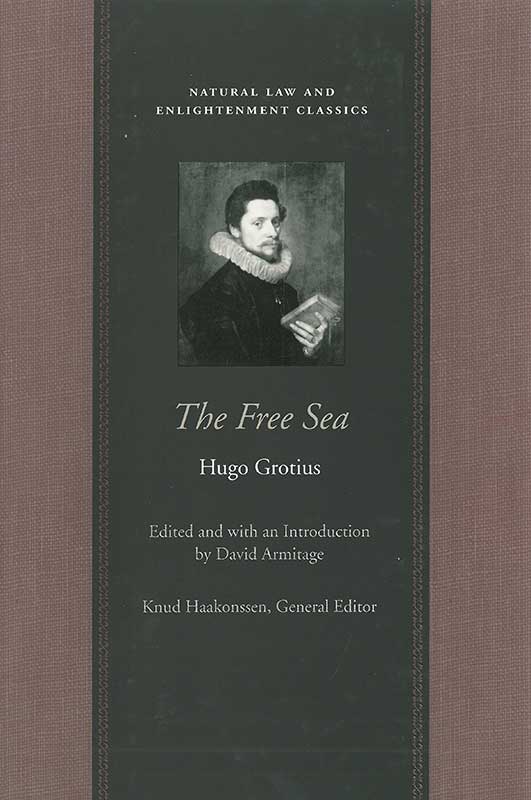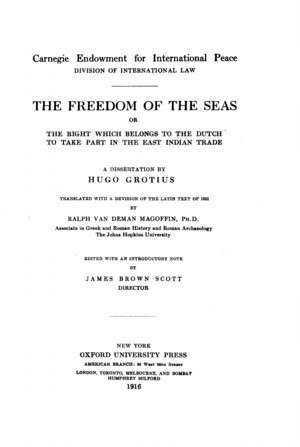Freedom of the Seas
About this Collection
The Dutch jurist Hugo Grotius wrote a defence of the freedom of the seas, Mare Liberum, in 1609. According to the editor of the Liberty fund edition of this work:
By publishing Mare Liberum, he was displaying the literary, rhetorical, and philosophical talents that had won him his burgeoning fame and respect, and he was also intervening in two political debates of pivotal significance for his own country. The first was the relationship between the United Provinces and the Spanish monarchy, from which the Dutch had broken away in 1581; the second was the Dutch right to commercial penetration in Southeast Asia. Although the arena of dispute was local, the implications of Mare Liberums arguments were global. The book was taken by the English and the Scots as an assault on their fishing rights in the North Sea (see Welwod’s critique) and by the Spanish as an attack on the foundations of their overseas empire. It had implications no less for coastal waters than it did for the high seas, for the West Indies as much as for the East Indies, and for intra-European disputes as well as for relations between the European powers and extra-European peoples.
Key People
Titles & Essays


